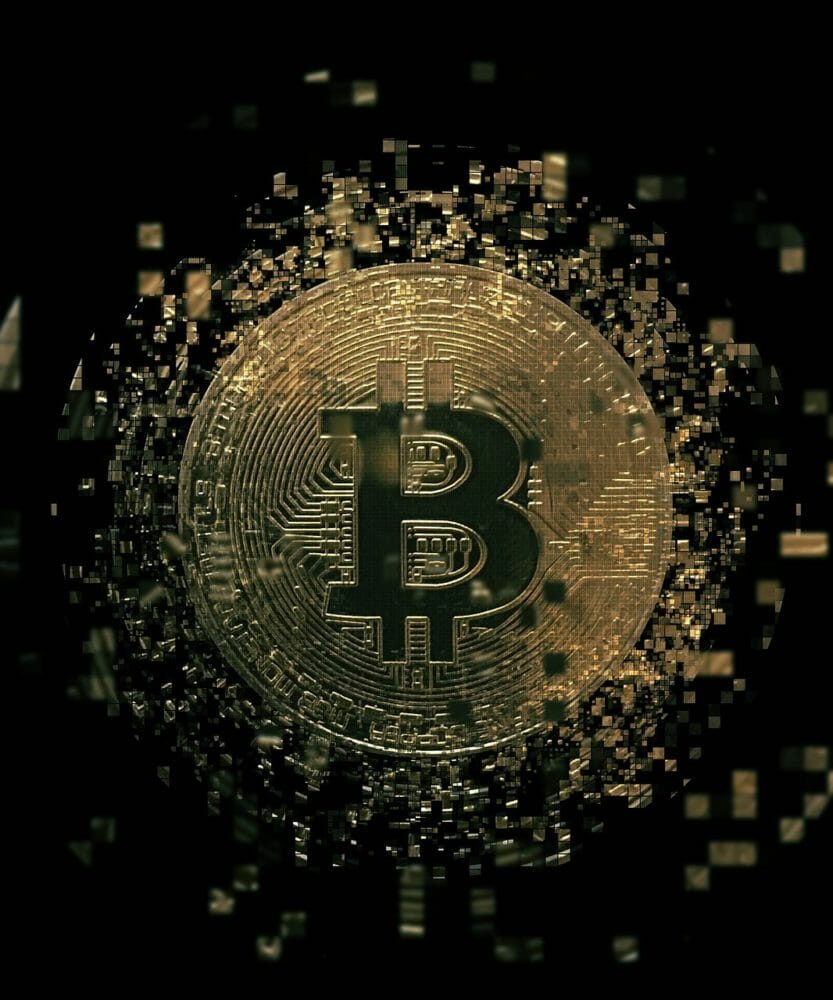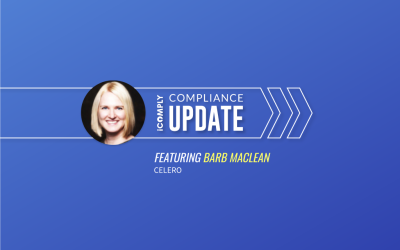Looking Back on Blockchain and Token Offerings in 2017

As the world’s tech and financial sectors continue to dramatically transform, 2017 will be remembered as a major turning point for global financial markets. While some naysayers claim that blockchain has yet to provide any practical value, a brief look back over the past 12 months tells a very different and exciting story. From WhopperCoin and the CryptoRuble, to massive Bitcoin volatility, ICO crackdowns, and the push for new regulatory frameworks, 2017 was a year of many “firsts” in fintech.
Incumbent Banks Adopting Blockchain
In September 2017, RBC Royal Bank, along with JP Morgan Chase and the Australia and New Zealand Banking Group, launched a new payment processing network using blockchain technology. According to a report by Accenture, 9 out of 10 bank executives are currently exploring the use of blockchain.
ICOs: The Rising Phoenix
If anything about 2017 is certain it is that the technology behind the wild west of ICOs promises new efficiencies in raising capital surpassing both private equity and VCs. Filecoin raised $257 million in a single month, Burger King issued the WhopperCoin in Russia, and Cryptokitties launched the first and only ICO that North American regulators have called a utility. In doing so, the Cryptokitties “initial cat offering” helped pave the way for blockchain to be used to manage rights of ownership that extends beyond securities.
Prior to Cryptokitties, token issuers failed to achieve formal recognition by regulators as a utility in North America. This was underscored by unscripted remarks from SEC Chairman Jay Clayton, when he noted that ICOs “have a sufficient number of hallmarks” to be considered securities. By establishing a precedent with Cryptokitties, and creating the non-fungible ERC721 token, Cryptokitties opened the door for tokens to be used as deeds of ownership for personal property. The opportunities this creates for managing both digital and physical property, including art, design, and software, are nearly limitless.
While many entrepreneurs loudly lamented the SEC’s crackdown on token offerings in July, the truth is that analysts and fintech innovators had predicted this would happen long before it actually did. At iComply, the initial development of our patented Prefacto technology, which enables a blockchain smart contract to operate within the framework(s) of securities regulation across jurisdictions, emerged out of our CEO’s project at MIT more than two years ago – but at that time, major banks were not ready to implement the technology. That is no longer the case, read more in our article: Central Banks and Public Blockchains.
The SEC’s enforcement decision in July 2017 changed this and was followed by multiple announcements and crackdowns by regulators worldwide. For about a month, this slowed the pace of token launches until projects like Filecoin raised $257M USD by restricting their SAFT (Simple Agreement for Future Tokens) offering to accredited investors. Cardoza Project, led by several leading legal minds, challenged the SAFT’s validity by asserting that “the ‘functionality’ distinction underpinning the SAFT’s attempt to ‘navigate’ around federal securities laws is not well supported by current law.”
Shortly after, two token offerings, Impak and TokenFundr, attempted to use an existing Canadian securities law exemption, the Offering Memorandum, to sell their tokens. Both experienced limited success, with Impak raising barely over $1M. To further complicate matters, Tokenfundr’s offering was restricted to a maximum investment of $2,500 CAD per non-accredited investor and the tokens were not allowed to list on any exchange until the issuer could meet the legal and regulatory requirements for secondary trading. These examples suggest that without significant modernization of current securities regulations, or the incorporation of securities regulations into the token itself, the funding of decentralized technology may be stifled in North America as issuers continue to shop for more favourable regulatory environments overseas.
Looking for an end-to-end token management studio?
iComply’s token compliance platform, Prefacto enables issuers to capture the value of blockchain asset management with multi-jurisdictional compliance automation for over 150 countries.
Book a demo with one of our specialists to learn more.
In 2017, about half of tokenized offerings were launched outside of North America, but as new decentralized technology unlocks the ability for legal and compliant secondary trading, 2018 is likely to see the pendulum swing as regulators are expected to step in and start taking enforcement actions. While this could very likely stifle the hype around token offerings, it is also likely that these precedents will help the market innovate, thrive and scale in the long term. Instead of killing the token industry, regulation and investor protection may help it mature to a point where financial institutions can adopt the technology.
While some have attempted to rebrand the ICO with terms such as STO (security token offering), IEO (initial exchange offering), TAO (tokenized asset offering), DAICO (decentralized autonomous initial coin offering), and PBICO (public blockchain initial coin offering), the old saying, “You can’t put lipstick on a pig” holds true. ICOs do not need a facelift, they need a complete structural overhaul with a commitment to transparency, integrity, and institutional adoptability.
Fortunately, these are all attributes that decentralized ledger technology is incredibly good at. Unlocking the ability to launch a token offering that provides investors with both protection through a registered securities offering and liquidity through compliant secondary trading opens the door for decentralized technology to disrupt mainstream financial markets. Over $200 Trillion USD is available globally when smart contract powered tokens are structured as compliant private placements, REITs, IPOs, Investor Coops, existing shareholder offerings, and other legal offerings. When reimagined in the context of traditional finance – these investment vehicles could increase both public investment and bring institutional investors to the table. Credibility through regulatory oversight, together with engagement by traditional exchanges and financial institutions, could open doors for the regulated global capital markets to move into decentralized financial infrastructure.
Sovereign Cryptocurrencies
Multiple countries announced plans for digital currencies in 2017. Among them, Russia announced the upcoming CryptoRuble, India pondered a CryptoRupee, Sweden discussed the eKrona, Estonia is releasing Estcoins, Venezuela is launching the Petro, and Japan plans a JCoin for 2020. Palestine, which has no sovereign currency, published a five-year digital currency timeline. The Ukraine and Israel have also announced plans to launch centralized digital currencies.
For the US economy, the biggest impact may come from China, when leaked documents showed a near-brilliant and Sun Tsu’sque strategy to separate the Asian economy from the US Dollar. According to reports, China will release a second national currency as a fiat cryptocurrency that would not replace its paper currency but run in tandem. Furthermore, part of the strategy includes using traditional North American stock exchanges to list funds that would kick-start investment into companies valued in the so-called ‘Crypto-RMB’.
While the US financial system continues to struggle decentralization, countries around the world see this as the first major economic leapfrog opportunity, perhaps in centuries. The question is no longer whether or not the global financial system will move toward sovereign cryptocurrencies but whether the global economic superpowers of today can maintain their position without taken action immediately.
While 2017 was a year of many firsts for blockchain, tokens, and distributed ledger technology as a whole, it appears to only be a small stepping stone on the path towards decentralization. It is likely that we will see major headlines in the future as nations move their chess pieces to establish themselves in the new fabric of globally distributed and decentralized financial systems.
Looking for financial grade KYC and AML in an enterprise ready API?
iComply offers global screening for humans, corporations, and blockchain transactions in a single REST API.
Book a demo with one of our specialists to learn more.
About iComply Investor Services Inc.
iComply Investor Services Inc. (iComply) is an award-winning software company focused on reducing regulatory friction in the capital markets. With powerful data, verification, tokenization solutions, iComply helps companies overcome the cost and complexity of multi-jurisdictional compliance to effectively access new markets. Learn more: iComplyIS.com
Q3 2022 Regulatory Updates
Regulatory actions and industry updates from financial authorities and regulators around the globe in Q3 2022
October 2021 Regulatory Updates
Regulatory actions and industry updates from financial authorities and regulators around the globe in October 2021
Ethics of AI in Facial Recognition – Credit Unions
Our latest expert insight from Barb MacLean at Celero reviews the ethical impacts credit unions face when using facial recognition software


